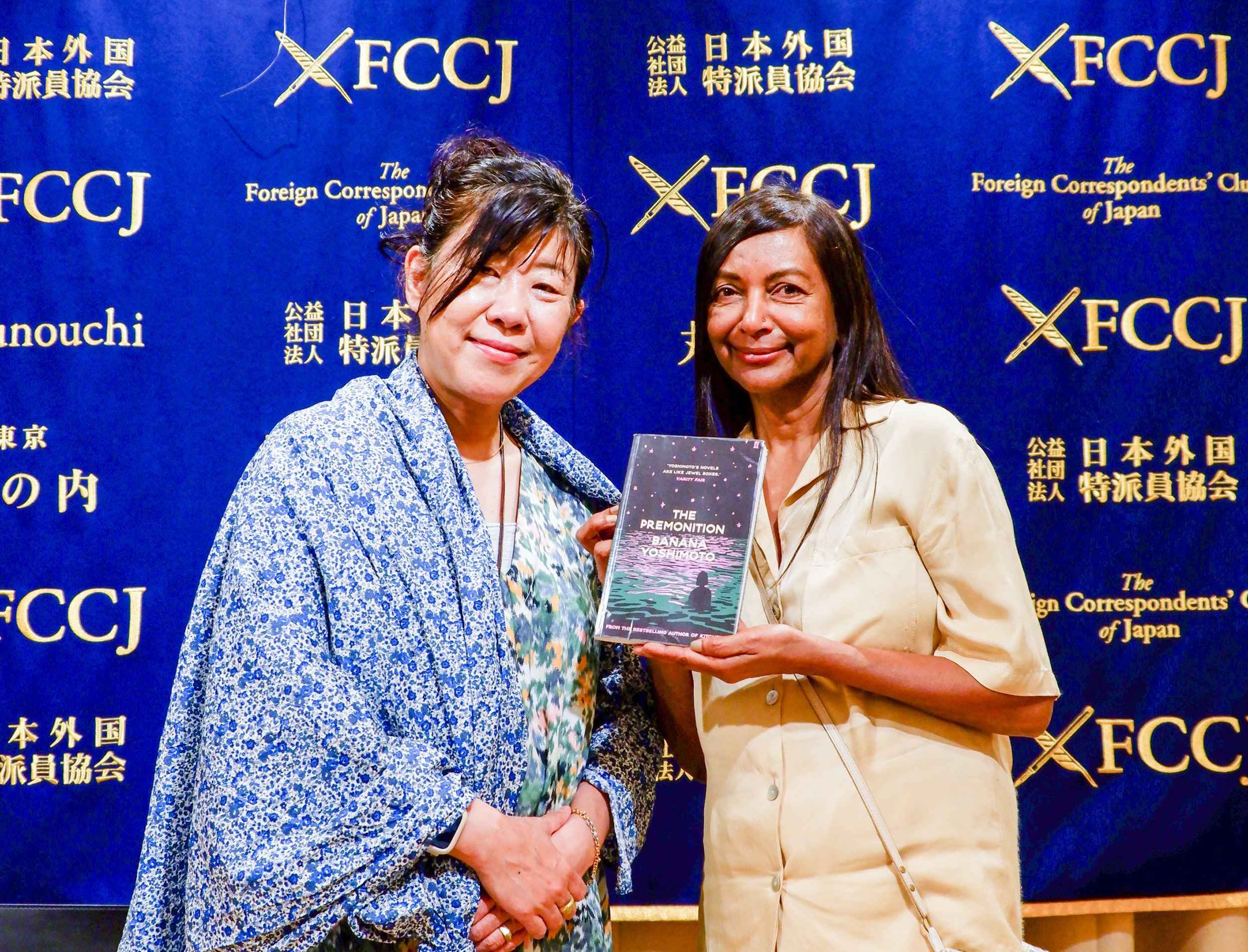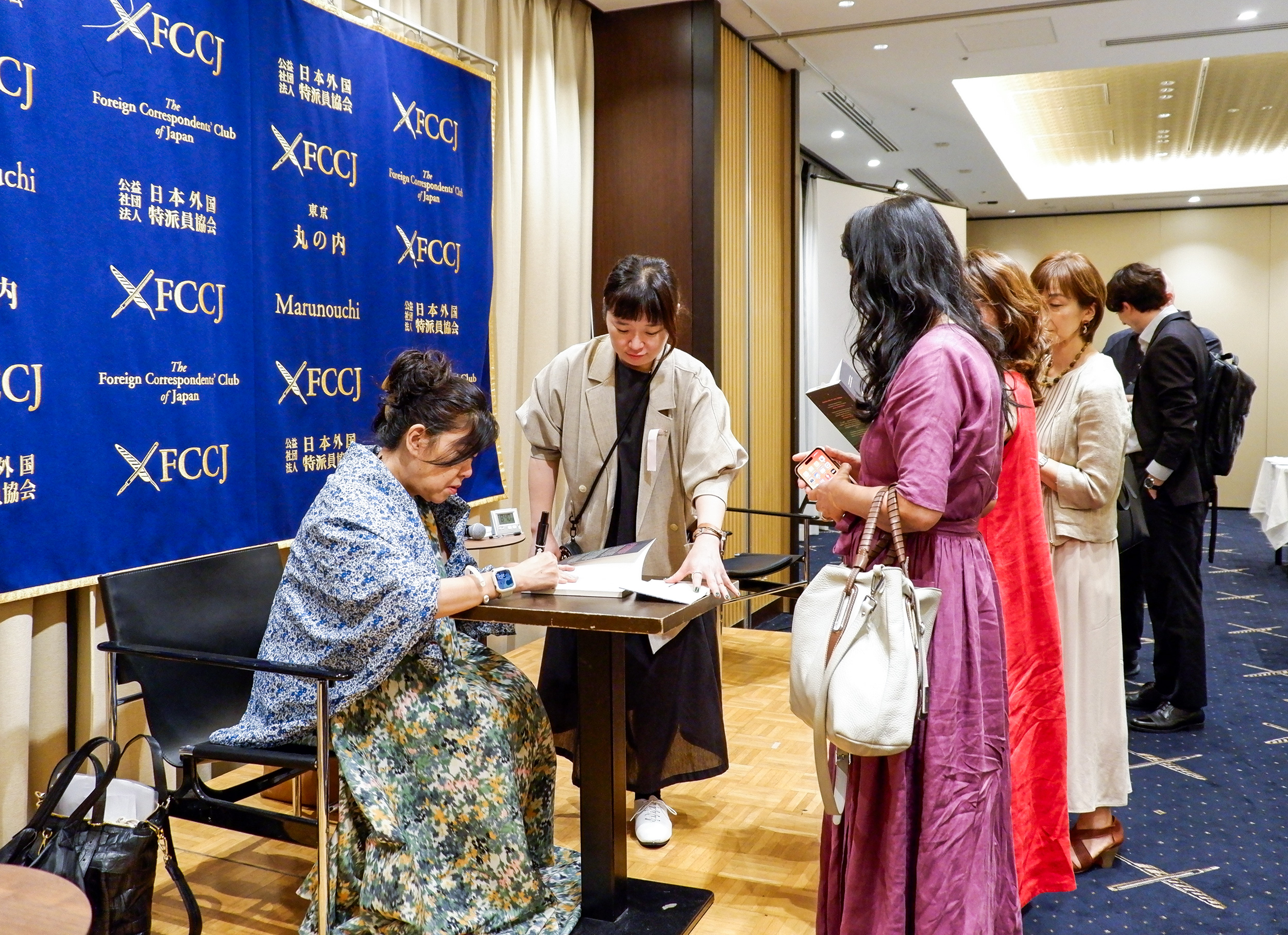Issue:
August 2024 | Book Break
Banana Yoshimoto continues to enthrall almost four decades after her debut

At a time when English translations of Japanese female writers are attracting a global audience, award-winning novelist Banana Yoshimoto represents a significant landmark. Speaking at an FCCJ literary evening in July, the 59-year-old author did not fail to delight. Displaying her down-to-earth appeal, she generously discussed the intricacies of her writing, which has won plaudits for the empathy she shows for ordinary Japanese people. Her themes grapple with the banality of routine life while shining a light on the marvels of little things – the peep of a flower in fresh spring, the warmth of food, joy woken from a simple smile - both physically and existentially.
“Success,” she said with a laugh on response to a reference from the floor to her fame and prolific writing. “It is hard to identify the reasons for my popularity. My books could be categorized as a subculture. Mostly, I simply write for fun.”
Yoshimoto, whose pseudonym name reflects her love for banana flowers, won the prestigious Kaien award in Japan in 1987 for talented new writers for her book Kitchen, which had earlier been serialized in a literary magazine. The book, reprinted 60 times, tells the story of an orphan who finds love and energy through bonding with other characters, including a transsexual. They spend time together in kitchens and with food. The novel swept the world when it was translated into English in 1993. Banana is particularly loved in Italy, where the Italian version sold 300,000 copies. In 2010 she also won the International Capri award.
At the FCCJ, Yoshimoto spoke about her book The Premonition, written in 1989 and published in English in 2003. The 130-page novel is about death and life, in that order. The protagonist, Yayoi, a teenager whose parents died in a car accident when she was very young, is drawn to a mysterious feeling that helps her discover her complicated past. Critics have hailed the text as visceral. In particular they point to Yoshimoto’s lucid portrayal of Yayoi’s budding romance with her male friend, a high school student, as conveying the essence of youthful emotions: a hunger for companionship and love in an alienated society.

The book also explores another important topic for the author. Weaving through the story is reference to the role of the supernatural in our lives, a phenomenon that Yoshimoto contends has been lost as a result of technology and our busy jobs. “My fascination with the unknown began when I lost my eyesight as a child for a while.” The experience awoke her senses, paving the way to see a world that was normally hidden.
She explores that theme in her essays-cum-blogs, written when the world shut down during the Covid-19 pandemic. Entitled Dogudami-chan and Fushibana – references to a Japanese plant and her lifestyle – they are observations on the power of spiritualism in nature: the joy of looking at stars in the night sky, the beauty of leaves, and fresh air in an empty city. Readers said the instantly popular columns had become a source of comfort during the dark days of the pandemic. “Contrary to the panic in the world as the virus spread, I did not respond with fear. This was because I had already faced this nightmare ahead and found it normal,” Yoshimoto told the FCCJ audience.
Her forthcoming book will focus on Japanese folktales and their magical and mystic aspects. “The unknown is important for me for as it carries wide meanings and connotations. I believe the supernatural is a healing process,” she said. As a postmodern author, Yoshimoto, like other female writers, celebrates the exuberances and challenges of freedom. Their subjects are financially independent Japanese women who reject traditional expectations. They embark on diverse lifestyles that involve new challenges, such as divorce, single motherhood, and loneliness.
Yoshimoto spent some of the event reading extracts from her stories, her soft voice capturing everything from the taste of convenience store bentos to the commuting grind during the Tokyo rush hour. It was a far cry from early postwar male literary giants who equated “Japanese-ness” with kimono-clad geisha and cherry blossoms. “Japanese youth today are searching for meaning in their economically driven society,” Yoshimoto said. “They want more than material goods.”
Suvendrini Kakuchi is Tokyo Correspondent for University World News in the U.K.

